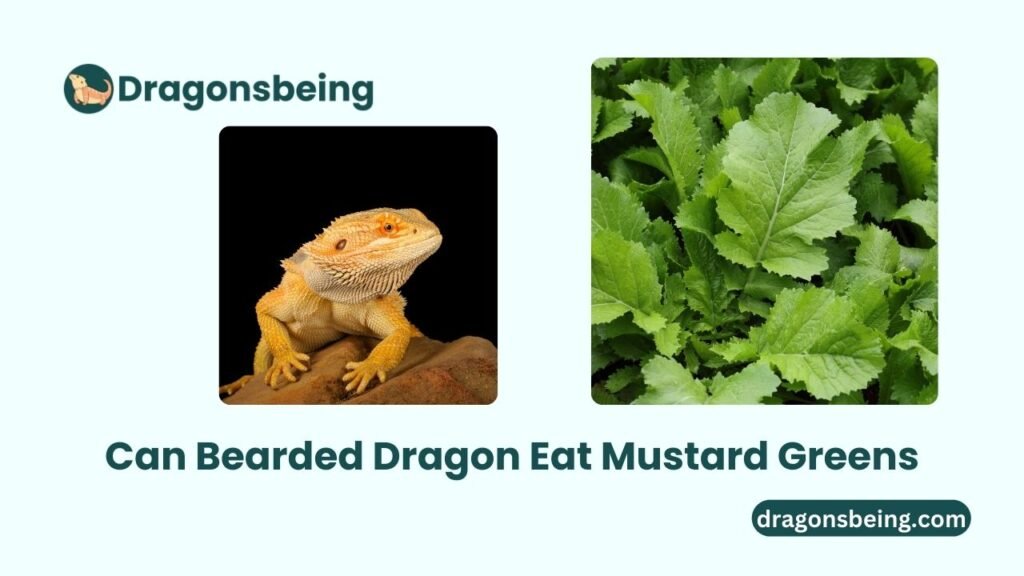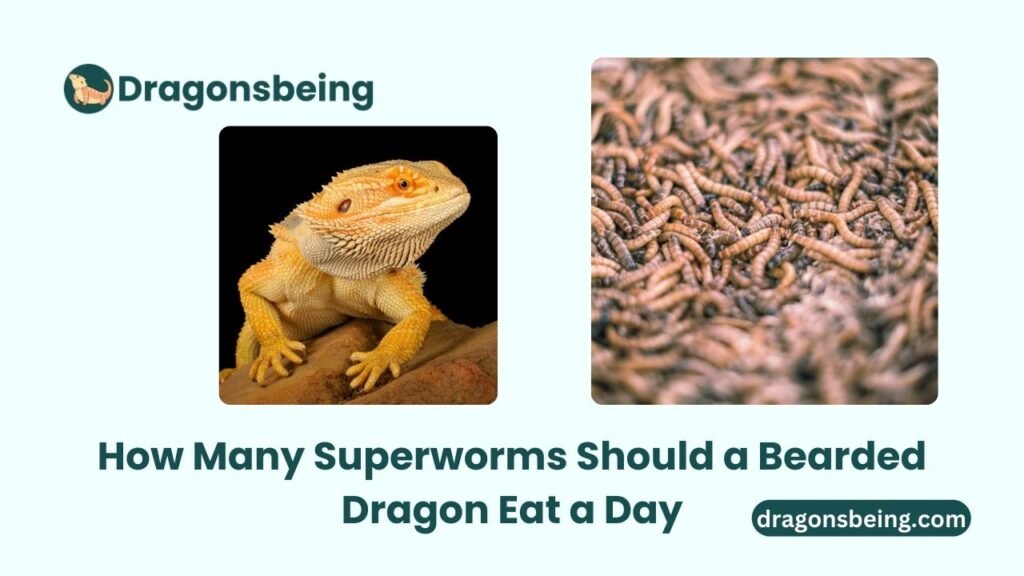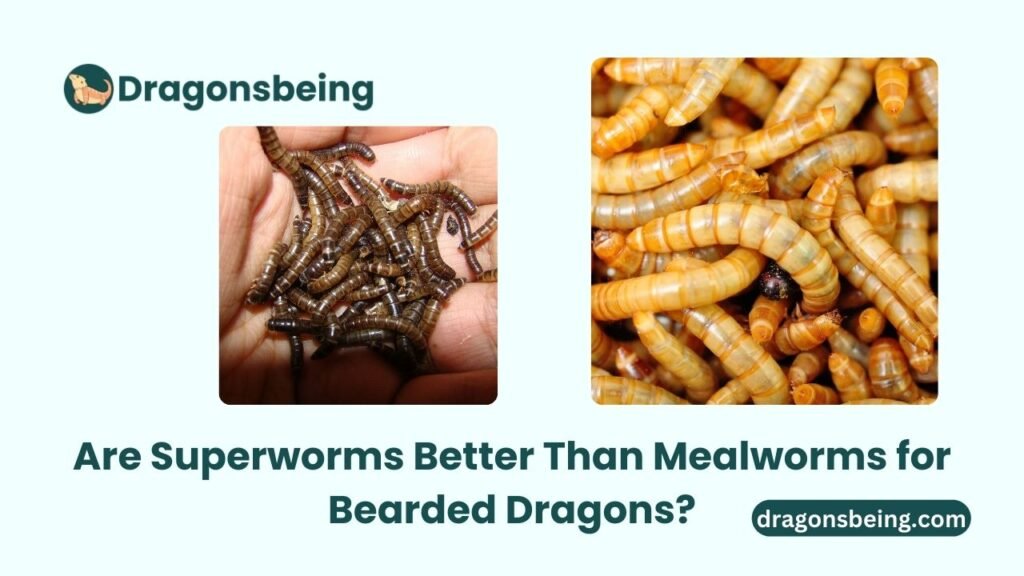Yes, bearded dragons can eat mustard greens. These leafy greens are safe and nutritious for them.
Mustard greens are a popular choice among reptile owners. They offer essential vitamins and minerals that benefit bearded dragons.
Rich in calcium and vitamins A, C, and K, these greens support overall health. Including mustard greens in your dragon’s diet promotes healthy growth and digestion.
Always wash greens thoroughly to remove pesticides and contaminants. Introduce new foods gradually to monitor for any adverse reactions.
A varied diet enhances your bearded dragon’s well-being. Proper care and nutrition lead to a happier and healthier pet.
Balancing greens with other vegetables and protein sources for optimal nutrition. Your bearded dragon will thrive with the right diet.
The Nutritional Profile Of Mustard Greens
Mustard greens are nutritious vegetables. They offer many health benefits for bearded dragons. Understanding their nutritional profile helps in making informed dietary choices.
Vitamins And Minerals In Mustard Greens
Mustard greens are packed with essential vitamins and minerals. Here are some key nutrients:
| Nutrient | Amount per 100g | Benefits |
|---|---|---|
| Vitamin A | 18100 IU | Supports vision and immune function. |
| Vitamin C | 70 mg | Boosts the immune system and skin health. |
| Calcium | 140 mg | Promotes strong bones and teeth. |
| Iron | 1.5 mg | Essential for blood production. |
| Fiber | 2 g | Aids digestion and gut health. |
These nutrients make mustard greens a healthy choice. They provide energy and support overall health.
Risks Associated With Mustard Greens
Feeding mustard greens comes with some risks. Be aware of these potential issues:
- Oxalates: High levels can affect calcium absorption.
- Goitrogens: May interfere with thyroid function.
- Pesticides: Always wash greens to remove chemicals.
Balance is key. Offer mustard greens in moderation. Combine them with other vegetables for a varied diet.
Can Bearded Dragons Eat Mustard Greens?
Bearded dragons can eat mustard greens. These leafy greens are nutritious. They provide essential vitamins and minerals. It’s important to know how to feed them properly.
Benefits Of Mustard Greens For Bearded Dragons
Mustard greens are a great addition to a bearded dragon’s diet. Here are some key benefits:
- Rich in Vitamins: High in vitamins A, C, and K.
- Calcium Content: Supports strong bones and teeth.
- Hydration: Contains a lot of water, keeping your pet hydrated.
- Fiber: Aids digestion and promotes gut health.
Potential Concerns
While mustard greens are beneficial, there are some concerns:
- Oxalates: Mustard greens contain oxalates. These can bind calcium.
- Pesticides: Always wash greens thoroughly. Pesticides can harm your dragon.
- Overfeeding: Too much can cause digestive issues. Offer in moderation.
| Concern | Recommendation |
|---|---|
| Oxalates | Limit frequency of mustard greens. |
| Pesticides | Wash all greens before feeding. |
| Overfeeding | Offer small amounts, mixed with other veggies. |
How To Safely Introduce Mustard Greens To Your Bearded Dragon
Introducing mustard greens to your bearded dragon can be exciting. Proper preparation ensures a safe and healthy experience. Follow these simple steps to make the process easy.
Preparation Techniques
Start by selecting fresh mustard greens. Look for vibrant leaves without any brown spots. Clean them thoroughly to remove dirt and pesticides.
- Wash the leaves under running water.
- Remove any tough stems.
- Chop the greens into small, bite-sized pieces.
Before serving, consider these tips:
- Mix mustard greens with other safe greens.
- Introduce them gradually, about once a week.
- Observe your bearded dragon for any reactions.
Recommended Portions
Portion control is important for a balanced diet. Start with small amounts of mustard greens. Here’s a quick guide:
| Age of Bearded Dragon | Recommended Portion |
|---|---|
| Juveniles (up to 6 months) | 1-2 small leaves |
| Adults (6 months and older) | 2-3 small leaves |
Always monitor your bearded dragon after feeding. Adjust portions based on their preferences and health. Keeping a varied diet helps maintain their well-being.
The Importance Of A Varied Diet
A diverse diet is essential for your bearded dragon’s health. It provides vital nutrients and prevents deficiencies. Different foods keep your pet interested and excited at mealtime. Mustard greens are a good choice, but they should not be the only option.
Offering various greens and vegetables helps maintain a balanced diet. This approach supports growth and boosts energy levels. It also aids in digestion and overall well-being.
Other Greens And Vegetables For Bearded Dragons
Incorporating different greens and vegetables will enhance your bearded dragon’s diet. Here are some excellent options:
- Collard Greens: Rich in calcium and vitamins.
- Turnip Greens: High in fiber and low in oxalates.
- Romaine Lettuce: Provides hydration and essential nutrients.
- Endive: A great source of vitamins A and K.
- Carrots: Good for vision and immune health.
| Green/Vegetable | Nutritional Benefits |
|---|---|
| Collard Greens | High in calcium, vitamins A and C |
| Turnip Greens | High in fiber, low in oxalates |
| Romaine Lettuce | Provides hydration, vitamins A and K |
| Endive | Rich in vitamins A and K |
| Carrots | Supports vision and immune health |
Foods To Avoid
Not all greens and vegetables are safe for bearded dragons. Some can be harmful or toxic. Here is a list of foods to avoid:
- Spinach: High in oxalates, which can block calcium absorption.
- Iceberg Lettuce: Lacks nutrients and can cause diarrhea.
- Potatoes: Contains solanine, which is toxic.
- Rhubarb: Highly toxic to reptiles.
- Avocado: Contains persin, which is poisonous.
Always ensure your bearded dragon has a balanced diet. Mixing different greens and vegetables will support their health and happiness.
Monitoring Your Bearded Dragon’s Health
Keeping an eye on your bearded dragon’s health is essential. A well-balanced diet is key. Mustard greens can be part of that diet. Knowing how to monitor their health helps ensure they thrive.
Signs Of A Balanced Diet
A balanced diet leads to a happy and healthy bearded dragon. Look for these signs:
- Bright Colors: Healthy dragons have vibrant colors.
- Active Behavior: They should be active and curious.
- Regular Bowel Movements: Normal droppings indicate good digestion.
- Healthy Shedding: Skin should shed evenly without issues.
- Good Weight: They should not be too thin or overweight.
Monitor their eating habits too. If they refuse food, it may signal a problem.
When To Consult A Veterinarian
Sometimes, health issues arise. Know when to seek help:
- Persistent Lack of Appetite: Not eating for more than a few days.
- Weight Loss: Noticeable weight loss over time.
- Abnormal Behavior: Lethargy or hiding frequently.
- Changes in Droppings: Diarrhea or abnormal colors.
- Respiratory Issues: Wheezing or difficulty breathing.
Early intervention is crucial for recovery. Schedule a vet visit if needed.
User Experiences With Mustard Greens And Bearded Dragons
Many owners share their thoughts on feeding mustard greens to their bearded dragons. Some have positive experiences, while others express concerns. Let’s explore these insights.
Positive Outcomes
Several owners report great results after introducing mustard greens. Here are some common positive experiences:
- Improved Appetite: Many dragons enjoy the taste.
- Enhanced Color: Owners notice vibrant colors in their pets.
- Healthier Digestion: Mustard greens help in digestion.
- Variety in Diet: Adds diversity to their meals.
Here’s a table summarizing the benefits:
| Benefit | Description |
|---|---|
| Improved Appetite | Dragons love the taste of mustard greens. |
| Enhanced Color | Owners see brighter colors in their dragons. |
| Healthier Digestion | Mustard greens aid in better digestion. |
| Variety in Diet | Mustard greens add fun to their meals. |
Concerns Raised By Owners
Some owners have raised concerns about feeding mustard greens. Here are the most common issues:
- Oxalate Levels: High oxalates can affect calcium absorption.
- Overfeeding: Too much can lead to digestive problems.
- Source Quality: Pesticides may be a risk.
- Individual Preferences: Not all dragons enjoy them.
Here are tips from owners to mitigate these concerns:
- Introduce mustard greens gradually.
- Mix with other greens to balance the diet.
- Wash thoroughly to remove pesticides.
- Observe your dragon’s reaction.
Frequently Asked Questions
Can Bearded Dragons Eat Mustard Greens Daily?
Bearded dragons can eat mustard greens regularly but should have a varied diet for optimal health.
What Nutrients Do Mustard Greens Provide?
Mustard greens are rich in vitamins A, C, and K, as well as calcium and fiber, supporting your dragon’s health.
Are Mustard Greens Safe For Baby Bearded Dragons?
Yes, baby bearded dragons can eat mustard greens in moderation, but ensure they are chopped into small pieces.
How To Prepare Mustard Greens For Bearded Dragons?
Wash the greens thoroughly, chop them into bite-sized pieces, and serve fresh to your bearded dragon.
Can Mustard Greens Cause Digestive Issues?
Overfeeding mustard greens may lead to digestive problems. Offer them in moderation alongside other greens.
What Other Greens Can Bearded Dragons Eat?
Bearded dragons can enjoy collard greens, dandelion greens, and kale for a balanced and nutritious diet.
Conclusion
Bearded dragons can safely enjoy mustard greens as part of a balanced diet. These greens provide essential nutrients and hydration. Always wash the leaves thoroughly before serving. Monitor your dragon’s reaction to new foods. A varied diet promotes health and happiness for your pet.
Keep exploring safe food options for optimal care.

Hi, I’m Dr. Michelle Mayers, a veterinary professional with a deep passion for animal health and well-being. Over the years, I’ve dedicated my life to caring for animals and helping pet owners better understand their furry, feathered, or scaly companions. On my blog, Dragonsbeing, I share insights, tips, and stories that aim to educate, inspire, and connect with fellow animal lovers. Join me at Dragonsbeing as we explore the fascinating world of veterinary care and celebrate the special bond between humans and animals!


